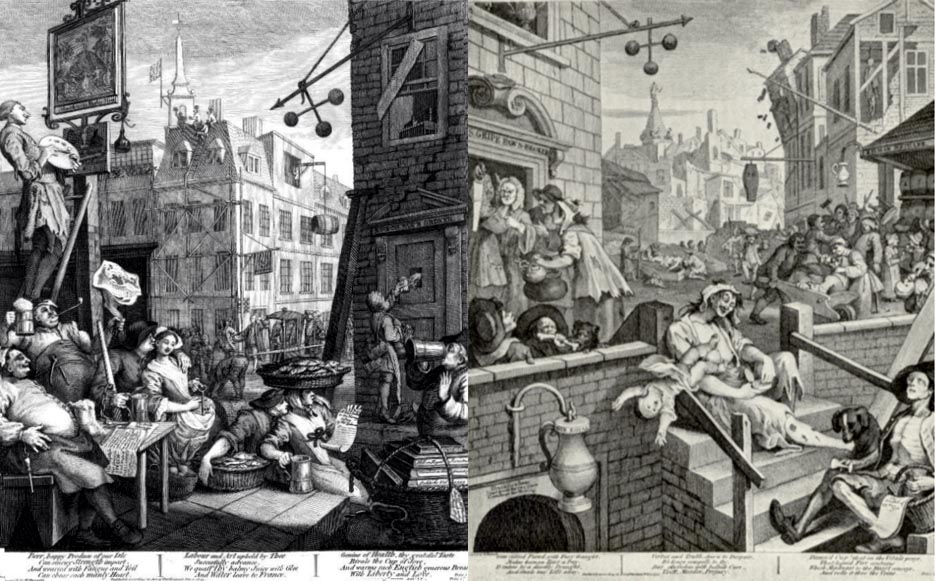The fact is that capitalism is itself an opiate, in that it requires greater and greater doses of profit to continue. Each new level of profit taking gives less satisfaction than the previous.
It is an amphetamine in that it requires faster and faster production on a mass basis in order to meet its insatiable appetite for profits. It requires faster and faster methods of accumulation in order to offset the empty feeling left as each quarterly profit increases over the last or last years.
Marx called this the tendency of the rate of profit to fall, or in short the falling rate of profit. And it is exactly the same as the drug addicts need for more in order to meet the same level of high.
I was reminded of this with the following news item
CEO of Euro Pacific Capital Peter Schiff told CTV’s Canada AM on Thursday. “If you look at the fundamentals, if you look at the contracting labour force, the declining use of energy, the explosion of poverty in America, and income inequality, the record numbers of food stamps and disability, all the part-time jobs that are now replacing the full-time jobs that we’ve lost, all of this is consistent with a shrinking economy. But the government won’t admit it,” Schiff said.
One authority on Junkies, the beat writer William Burroughs understood this and described it in his early novels Naked Lunch, Nova Express and the Ticket that Exploded. Capitalism produced the junkie, the addicted personality, the hoarder, etc as the result of mass consumption. They are the flotsam in the modern world of mass consumption.
And they are the ultimate consumer.
If drugs weren't forbidden in America, they would be the perfect middle-class vice. Addicts would do their work and come home to consume the huge dose of images awaiting them in the mass media. Junkies love to look at television. Billie Holiday said she knew she was going off drugs when she didn't like to watch TV. Or they'll sit and read a newspaper or magazine, and by God, read it all. I knew this old junkie in New York, and he'd go out and get a lot of newspapers and magazines and some candy bars and several packages of cigarettes and then he'd sit in his room and he'd read those newspapers and magazines right straight through. Indiscriminately. Every word.
Paris Review - The Art of Fiction No. 36, William S. Burroughs
What I found interesting is that Burroughs long considered an out there fringe writer, even more so after David Cronenberg's movie version of Naked Lunch, was compared with the Marxist Humanist; Frankfurt School for his analysis of the cultural addiction capitalism creates. And this should not be much of a surprise since they are writing in the era of the end of the greatest war humanity has ever experienced, the end of communism and the end of unregulated capitalism, in a time of technological and production advances made possible by the very same war. The Frankfurt School looked at the creation of this modern capitalist culture and its impact on the socio-psychology of human beings in much the same ways Burroughs does.
RealityStudio » “Giving Away the Basic American Rottenness”
Both the Frankfurt School and Burroughs perceive an “ethical crisis” in western societies which was particularly manifest by the time of the Second World War. Both also see failings and weaknesses inherent in post-enlightenment republics and both reject the resurrection of old philosophical or religious traits as a solution to either of these problems. Central to the critique of the Frankfurt School is the reduction of human thought to the status of a mere “tool”. Thought is instrumentalized — “subordinated like a tool to whatever end it is expected to serve” — and the “ends” of thought are not questioned. The manifestations of this in fields of science are shown in Naked Lunch: science in Naked Lunch is always shown as something dominated by other forces and other interests, and scientific thought and practice is increasingly instrumentalized.1
It is not only the result of capitalist development that creates a market for addiction, it is the very condition of the creation of capital that results in addiction. During the earliest years of capitalism in England saw streams of disenfranchised rural labourers moving into London's working class ghettos ending up unemployed, or employed in drudgery and addicted to Gin.

E W PLAWIUK 2020

No comments:
Post a Comment